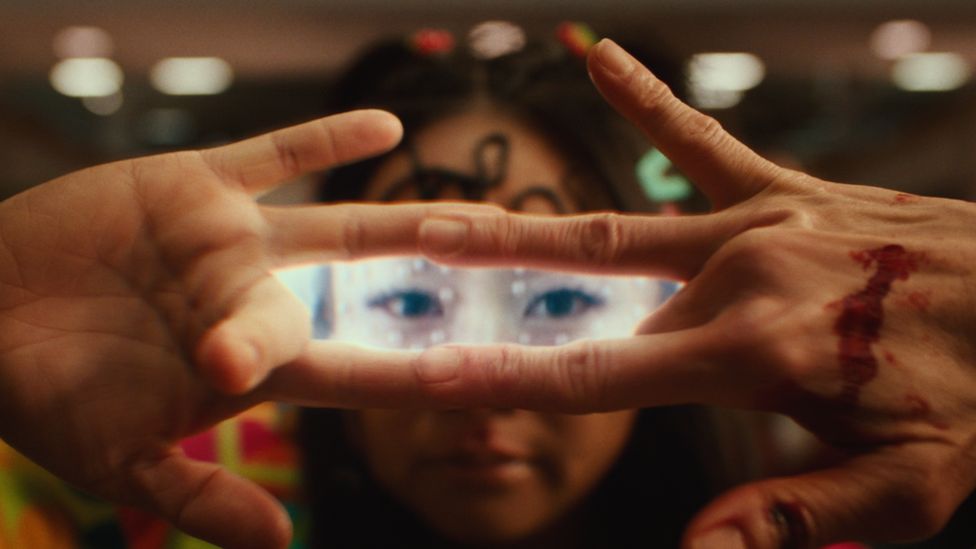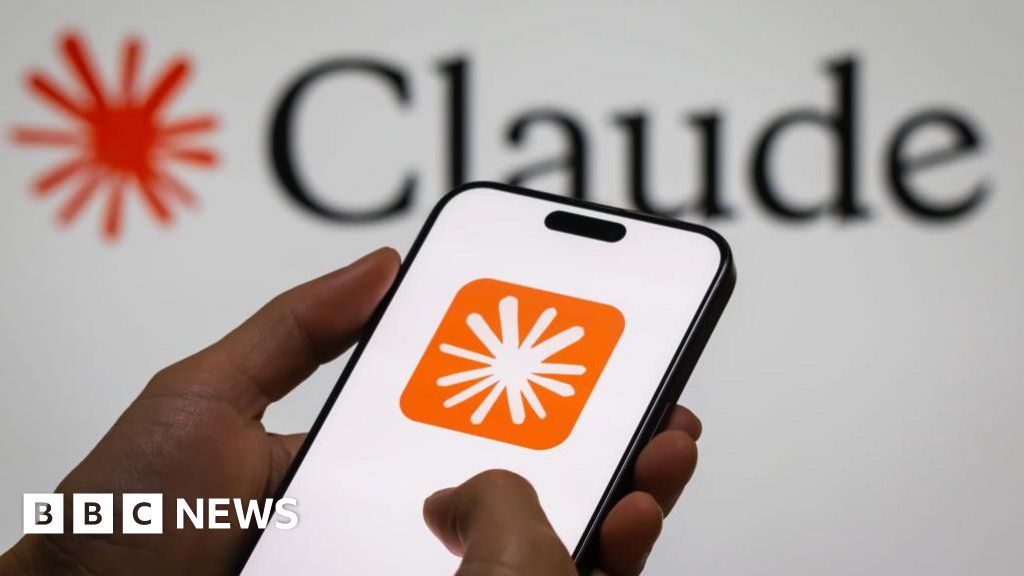ARTICLE AD BOX
 Image source, A24
Image source, A24
A peek at how Everything Everywhere All At Once's visual effects were made
By Danielle Fleming & Liv McMahon
BBC Click
Everything Everywhere All At Once has been lauded as one of 2022's most exciting films - with Oscar-nominated lead actress Michelle Yeoh taking viewers on a frenzied, heartfelt exploration of love, family and tax misery in the multiverse.
Jamie-Lee Curtis, Ke Huy Quan and Stephanie Hsu also feature in the £88m ($106m) hit, whose slimline budget is estimated to be a quarter of its current box office takings.
Committing to celluloid such a visual feast, including blasting bagels and hot dog fingers, involved significant challenges for the post-production team, who had to swap editing suites for their bedrooms during the Covid pandemic.
Four of the five-person visual effects (VFX) team - Zak Stoltz, Ethan Feldbau, Jeff Desom and Ben Brewer - spoke to the BBC about their eye-popping on-screen creations.
Lockdown constraints only added to the challenge of "a limited budget and a large ambition" for the film's visual effects, says Zak.
Isolated by pandemic restrictions, the small VFX team worked on most of the visuals - more than 500 in total - from their bedrooms in the US.
The film tells its story using "a very special visual language that used these effects shots to really communicate a lot," explains Ethan.
The team's limited time, computer power and expertise meant relying on tools such as Adobe's After Effects and free, open-source 3D graphics software Blender to create mostly 2D effects, he says.
"I think the coolest thing about the visual effects on this film is that they're all feasible on a budget," says Ben.
"Any shot that you've seen in this film, there's no price point on it that's particularly high," he adds
The 'everything bagel'
Image source, A24
Image caption,A menacing bagel is one of Everything Everywhere's most memorable metaphors
A looming, over-loaded bagel which threatens to swallow up the multiverse is one of many obstacles encountered by characters in the film.
The graphics software tool Blender, alongside a YouTube tutorial on its capabilities, was instrumental in crafting the film's absurd black hole, reveals Ben.
"Thousands of people have made this same doughnut with pink frosting. You model it, you light it - it's how you get the basics.
"I decided to just turn the icing off of this doughnut that I modelled - and make it black," he explains.
"I like seeing it [in the film] and thinking that there's really tens of thousands of people who've made that bagel - they just don't know that they did."
Other key contributions from the VFX team involved erasing characters from scenes entirely and creating 2D shading and animations of vegetables tumbling through the air.
Image source, A24
Image caption,VFX artist Jeff Desom used a 2D process for painting and animating flying vegetables
"It felt very inspiring and very motivating to keep going; to try things that weren't necessarily the right way to do it - or, like, the proper 3D way to do it - but just to do it in a way that looked good," says Jeff.
'Anything is possible'
While a nod to the visual effects team was not among the film's 11 Oscar nominations, Zak's team does feature among Everything Everywhere's 10 Bafta nominations - vying with blockbusters such as Avatar: The Way of Water and Top Gun: Maverick for the best special visual effects award.
The 76th British Academy Film Awards will be handed out on Sunday in London.
"Sometimes, in an industry-driven awards show, it's usually a larger film that gets an acknowledgment - so this feels really unique and very special," says Ethan.
But the team also hopes their small-scale approach to the film's visual effects will have a legacy which outlasts the awards season.
"If you can do VFX creatively and keep it focused on the creative [element] - and not about pushing technological boundaries - then anything is possible," Zak concludes.
Watch the full report on Click.

 2 years ago
62
2 years ago
62








 English (US) ·
English (US) ·